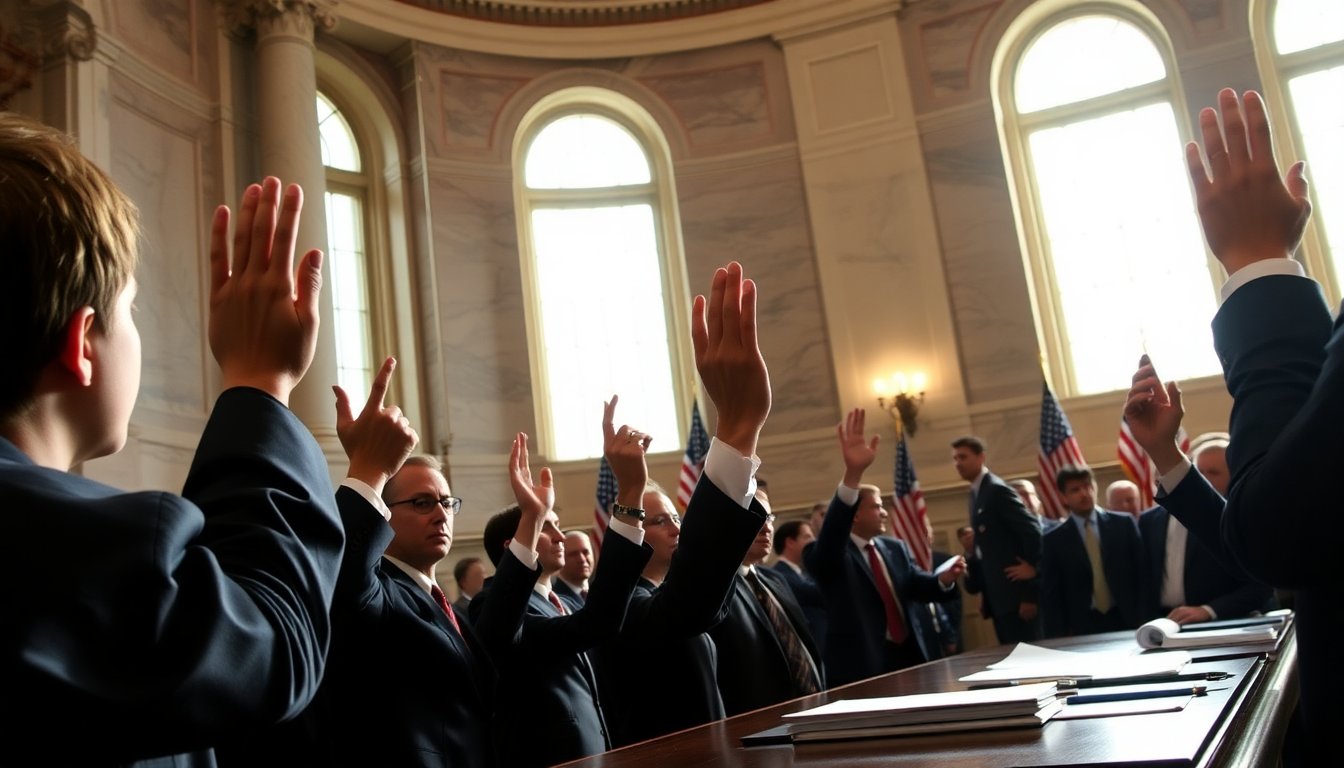Table of Contents
Congress officially recognizes Trump’s election victory
The United States Congress has officially acknowledged the election victory of Donald J. Trump. This recognition contrasts sharply with the chaotic events surrounding the electoral confirmation four years ago.
Vice President Kamala Harris played a crucial role in this process. She announced the election results clearly, underscoring the orderly nature of the certification. This moment highlights a change in the political climate and showcases the ability of legislative bodies to uphold decorum, even amid political tensions.
Historical context of electoral confirmations
The certification of election results plays a vital role in the democratic framework of the United States. This procedure, involving both the House of Representatives and the Senate, formally acknowledges the outcomes of presidential elections. However, the environment surrounding this process often shifts dramatically depending on the prevailing political climate.
In the last electoral cycle, the certification session was marked by tension and discord. Rather than a seamless announcement, Congress encountered substantial disruptions, including protests and challenges from various lawmakers. This tumultuous scenario underscored the profound divisions within the political arena at that time.
Contrast in recent sessions
The recent session emphasized unity and procedural integrity. Vice President Harris’s announcement proceeded without interruptions, indicating a commitment among legislators to uphold democratic principles. Observers noted that this calm approach could serve as a model for future electoral processes.
This year’s certification stood out due to its lack of controversy. The absence of significant objections from Congress members highlights a growing consensus on electoral integrity. This shift may lead to more streamlined processes in the future, fostering a healthier political environment.
Implications for the future of U.S. politics
The certification of Trump’s victory raises significant questions about the trajectory of U.S. politics. As the nation confronts ongoing challenges, including political polarization, Congress’s ability to unite during critical moments may reflect a growing desire for collaboration.
Political analysts indicate that this year’s relatively calm session could represent a pivotal moment. Both parties seem to acknowledge the necessity of ensuring stability during electoral confirmations. If this trend continues, future sessions may emphasize unity rather than division, potentially restoring public trust in the electoral process.
Public reception and response
The certification process has received a largely favorable response from the public. Many citizens expressed relief that the proceedings occurred without incident, indicating a desire for a more collaborative political atmosphere. This smooth transition is seen as a positive indicator that lawmakers can prioritize democratic values over partisanship.
Reactions on social media further reflect this sentiment, with many users emphasizing the importance of respecting electoral outcomes. This collective acknowledgment indicates a growing awareness among the populace regarding the significance of a peaceful transition of power.
Future implications of electoral certification
The recent certification of Trump’s victory underscores the essential role Congress plays in the electoral process. This event serves as a reminder of the importance of democratic principles, even in challenging times.
This certification extends beyond a mere procedural formality. It represents a reaffirmation of the democratic values that form the foundation of the United States. By prioritizing decorum and the common good, Congress may foster a more constructive political discourse in the future.


